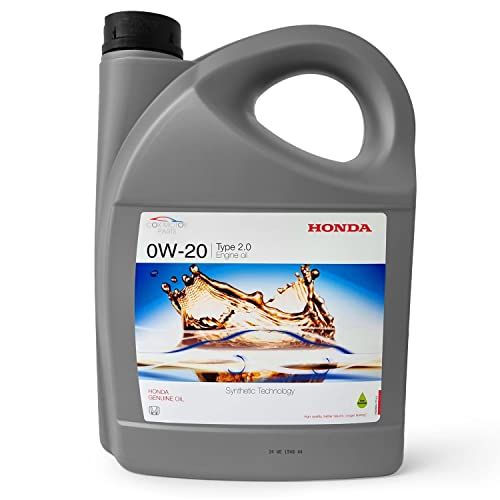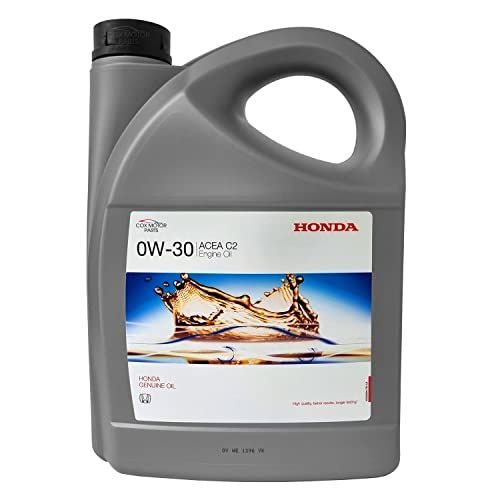Categories

Did you know that motor oil is one of the most important fluids in your vehicle's engine? It's true - without high-quality motor oil, your engine would grind to a halt in no time. That's why choosing the right oil is so critical for the performance and longevity of your car or truck. Cox Motor Parts offers a line of premium motor oils designed to protect your engine and keep it running smoothly for miles to come.
In this article, we'll take a close look at motor oil - what it does, why you need it, and how to choose the right oil for your vehicle. We'll also highlight the benefits of using Cox Motor Parts synthetic and conventional oils. Whether you're a DIY oil changer or a professional mechanic, you'll learn valuable information about getting the most out of your engine. So let's get started and dive into the oil!
Types of Motor Oil
There are several main types of motor oil to choose from for your vehicle:
Conventional Oil
Conventional oil is refined from crude oil and is the most common type used. It provides decent engine protection, but needs to be changed more frequently than synthetic oils, usually every 3,000-5,000 miles. Conventional oil is fine for most everyday drivers.
Synthetic Oil
Synthetic oil is chemically engineered in a laboratory to create higher performance lubricants. It flows better at low temperatures, provides better protection at high temperatures, and reduces engine wear. Synthetic oils allow for longer drain intervals, usually around 7,500-10,000 miles between changes. They cost more than conventional oils, but can be a good choice for vehicles with high mileage or under extreme conditions.
Blend Oil
As the name implies, blend oils mix conventional and synthetic base oils to provide some of the benefits of synthetic at a lower cost. Drain intervals are longer than conventional oil but shorter than full synthetics. Blends are a good compromise for drivers looking for increased performance without the higher price tag of synthetics.
High Mileage Oil
High mileage oils are designed for older engines with more than 75,000 miles. They contain additives like seal conditioners to slow leaks and reduce oil consumption in worn engines. High mileage oil provides added protection for aging engine components.
How Motor Oil Works
Motor oil plays a crucial role in keeping your engine running smoothly. It acts as a lubricant to reduce friction between moving metal parts in the engine. The oil forms a thin film that separates surfaces of adjacent moving parts to minimize direct contact, which reduces wear and tear.
In addition to lubricating, motor oil has other important functions:
Cooling - It absorbs and dissipates heat from high temperature engine components like pistons, bearings and cylinder walls. This prevents overheating and helps maintain optimal operating temperatures.
Cleaning - It contains detergent additives that suspend contaminant particles like dirt, carbon and metal shavings. This prevents buildup and blockage in tight areas of the engine.
Sealing - It seals tiny gaps between piston rings and cylinder walls to maintain compression and prevent combustion gases from escaping.
Rust/corrosion prevention - Additives protect metal components from rusting and corrosion, extending engine life.
Reducing foam - Antifoaming additives reduce oil foaming which can decrease oil's lubricating properties.
So in summary, motor oil allows for smooth friction-free movement of engine components while protecting the engine from wear and tear. Proper oil lubrication is essential for optimum engine performance and longevity.
Choosing the Right Oil
When selecting motor oil, it's important to consider several factors specific to your vehicle and driving conditions. This ensures you get the oil that will best protect your engine.
Vehicle Type
Consult your owner's manual to see what oil viscosity and service category is recommended by the manufacturer. This takes into account the size of the engine, clearances, emissions equipment, and other design factors.
For older vehicles, lower viscosity oils are typically recommended, such as 5W-30 or 10W-30. Newer vehicles often take higher viscosity oils like 0W-20 or 5W-20 to improve fuel economy.
Synthetic oils are recommended for most modern engines to reduce wear, but check to see if they are required or just recommended.
Climate and Temperatures
Use lower viscosity oils (thinner oils) in hot climates, higher viscosity oils in cold climates.
Oils with a wider viscosity range, like 10W-30, allow suitable performance in hot and cold weather.
In extreme cold, consider a synthetic 0W or 5W oil to improve flow at start-up.
Driving Conditions
For stop-and-go city driving, shorter oil change intervals are recommended.
Highway cruising allows longer intervals between oil changes.
Towing or hauling heavy loads causes more stress on the oil and requires more frequent changes.
Performance driving also increases heat and deposits, needing more attention to oil service.
Infrequent driving can allow moisture and acids to contaminate the oil, therefore change intervals should be based on time if mileage is low.
Benefits of Cox Motor Parts Oil
Cox Motor Parts Oil provides a number of key benefits for your vehicle:
Superior Engine Protection: Cox oils are expertly formulated to provide maximum protection against wear, friction, high temperatures, deposits, and corrosion. They help extend the life of critical engine components.
Better Fuel Economy: Cox oils are designed to reduce friction and minimize energy loss, enabling your engine to operate more efficiently and economically. Using Cox oil can improve your fuel mileage.
All-Weather Performance: Cox oils maintain excellent viscosity and flow characteristics in cold and hot temperatures. This ensures proper lubrication protection and minimized wear in all climates and seasons.
Advanced Additive Technology: Cox oils contain a proprietary blend of advanced additives that provide unparalleled protection, cleanliness, stability, and performance. Additives include detergents, dispersants, anti-wear agents, antioxidants, and more.
Meets Latest Industry Standards: Cox oils meet or exceed the latest API, ACEA, and OEM motor oil specifications. They are approved for use by major auto manufacturers.
Trusted UK Brand: Cox is a leading UK brand that has been producing high quality oils for over 50 years. Its oils are specially formulated for European vehicles and driving conditions.
Cox Motor Parts Oil provides maximum engine protection and performance. Its advanced formula and additive technology deliver tangible benefits consumers can trust.
Cox Product Line Overview
Cox Motor Parts offers a wide range of motor oils to meet the needs of different vehicles and driving conditions. Here's a brief overview of some of their key products:
Cox Synthetic Motor Oil
A premium full synthetic motor oil that provides maximum engine protection, cleaning power, and wear prevention. Recommended for high-performance engines.
Cox High Mileage Motor Oil
Specifically formulated for vehicles with over 75,000 miles. Contains seal conditioners to prevent leaks. Helps reduce oil consumption in older engines.
Cox Conventional Motor Oil
A mineral-based motor oil blended for routine maintenance of normal passenger vehicles. Meets major industry specifications. A cost-effective option for everyday driving.
Cox Diesel Motor Oil
Advanced full synthetic formula designed for turbocharged and modern diesel engines. Exceeds strict standards set by diesel engine manufacturers.
Cox Motorcycle Oil
Designed specifically for motorcycle wet clutch systems and high-revving engines. Provides optimal viscosity and friction for smooth clutch engagement. Prevents slippage and chatter.
Oil Change Frequency
When it comes to oil changes, most manufacturers recommend changing your oil every 3,000-5,000 miles or every 3-6 months, whichever comes first. However, with modern engine advancements, most experts agree that you can typically go longer between changes, usually around 7,500-10,000 miles.
The optimal oil change interval depends on several factors:
Vehicle age and mileage - Older vehicles with higher mileage require more frequent changes. Newer cars can go longer between changes.
Driving conditions - Stop-and-go driving, frequent short trips, extreme temperatures, and dusty conditions cause oil to break down faster, requiring more frequent changes. Extended highway driving is gentler on oil.
Oil type - Synthetic oils designed for extended intervals can last longer between changes, while conventional oils need changing more often. Always use the oil recommended in your owner's manual.
Driving habits - Aggressive acceleration and braking wears oil faster. Moderate driving extends the life of your oil.
Vehicle maintenance - Poor engine performance, oil leaks, and issues like coolant leaks can contaminate and break down motor oil, necessitating more frequent changes. Well-maintained vehicles need less frequent changes.
The best way to determine your ideal change interval is to get your oil analyzed at each change. This allows you to see how quickly engine contaminants are building up. Adjust your interval accordingly to maximize engine protection. Most drivers can safely exceed quick-lube recommendations, but should not extend intervals longer than the automaker specifies.
Oil Filters
When changing your oil, it's crucial to also replace the oil filter. The oil filter plays a vital role in trapping dirt, metal particles and other contaminants that can damage your engine. Over time, the filter gets clogged and stops working properly. An old, dirty filter allows particles to flow through and circulate with the oil.
Replacing the oil filter ensures you have a clean filter to capture harmful debris. It also allows the new oil to flow freely through the engine. The filter prevents premature engine wear and failure. A high quality oil filter, like those offered by Cox Motor Parts, can trap particles as small as 10 microns. This keeps even microscopic debris out of your engine.
Don't skimp on replacing the oil filter. A fresh filter is cheap insurance when extending the life of your engine. The minimal extra cost is well worth it. Follow the manufacturer's recommendations for filter replacement intervals. Cox Motor Parts provides a wide selection of premium oil filters for all vehicle makes and models. Rely on Cox for the right filter to pair with your new motor oil.
Checking Oil Level
One of the most important things you can do between oil changes is to regularly check your oil level. This will help you spot potential leaks and ensure you don't run too low on oil. Here are some tips for monitoring oil level:
Check oil at least once a month and before any long trip. When the engine is cold, pull out the dipstick, wipe it off with a clean rag, then reinsert fully and pull back out to check the level.
The oil should be between the "Full" and "Add" marks on the dipstick. If it's below the "Add" mark, add oil immediately. Don't overfill past the "Full" mark.
Look at the condition of the oil on the dipstick. If it's dark and gritty, you may need an oil change soon even if you haven't reached the mileage interval yet.
Notice any unusual smells when checking oil. Burning or fuel smells can indicate an engine problem.
Watch for oil leaks on the ground under your car. A few drops is normal, but puddles or trails of oil indicate a leak that should be repaired.
Consider mileage, time, and driving conditions, not just miles driven, when deciding oil change frequency. Short trips and extreme temperatures require more frequent changes.
Regularly checking and topping off oil goes a long way to extending the life of your engine. By monitoring oil level routinely, you can avoid the damage caused by running low on this essential lubricant.
Conclusion
Cox Motor Parts Oil offers high performance and protection for your vehicle's engine. With a wide range of synthetic and conventional oils formulated for different needs, Cox has a product to suit any vehicle.
Key points covered in this article:
Motor oil lubricates moving engine parts, cleans, seals, and cools the engine. Choosing the manufacturer's recommended oil weight and grade is important.
Cox Motor Parts Oil comes in synthetic, synthetic blend, high mileage, and conventional options. It meets top industry standards for quality and performance.
Cox oils help extend engine life, reduce wear, improve fuel economy, and prevent sludge buildup. Their proprietary formulas set them apart from generic brands.
Oil and filter changes should be done regularly as specified in your owner's manual, usually every 5,000-7,500 miles. Use the automaker’s recommended oil filter.
Checking oil level regularly and topping it off if needed is vital for engine health between changes.
For superior engine protection tailored to your vehicle’s needs, give Cox Motor Parts Oil a try. Quality oils like Cox help your car run smoothly for years to come.
Cox Motor Parts Oil comparison
 |  | |
|---|---|---|
| Model | Cox Motor Parts Genuine Honda 0W-20 - 4 Litres | Cox Motor Parts Genuine Honda 0W-30 - 4 Litres |
| Brand | COX MOTOR PARTS | COX MOTOR PARTS |
| Item Weight | 3.55 kg | 3.55 kg |
| Manufacturer | Honda | Honda |
| Viscosity | 0W 20 sae_grade | 0W-30 |
| Vehicle Service Type | Car | Car |
| Price | £70.87 | £75.93 |
FAQ
What are the main Cox Motor Parts oils?
Cox Motor Parts offers a range of engine oils for petrol and diesel engines including fully synthetic, semi-synthetic and mineral oils. Their range includes oils suitable for different driving conditions and meeting industry specifications from major manufacturers. Some of their popular oils include Ultramax Fully Synthetic 5W-30, Ultramax Semi-Synthetic 10W-40 and Mineral Motor Oil 15W-40.
What types of engines are Cox Motor Parts oils suitable for?
Cox Motor Parts oils are suitable for a wide range of petrol and diesel car and van engines from major manufacturers like Ford, Vauxhall, Volkswagen, Toyota, Nissan and more. They offer mineral, semi-synthetic and fully synthetic oils to suit different engine types and driving conditions. Always check your vehicle handbook for the recommended oil specification.
Are Cox oils good quality?
Yes, Cox Motor Parts oils are high quality oils that meet and exceed industry standards set by API, ACEA and major car manufacturers. Their oils are formulated using quality base oils and additives to provide excellent engine protection and performance. Cox has decades of experience producing quality oils.
Where are Cox Motor Parts oils produced?
Cox Motor Parts oils are blended and bottled in the UK. The base oils and additives are sourced from leading global suppliers to ensure high quality standards are met during the production process. Buying UK blended oils supports British manufacturing.
How often should I change my oil?
You should change your oil based on the recommendations in your vehicle handbook. Most modern cars can cover 10,000+ miles between oil changes if a quality oil is used. More frequent changes are needed for engines under heavy use like towing or frequent short journeys. Cox oils help optimise oil change intervals.
What are the main oil specifications I should look for?
Common specs include ACEA performance ratings like A3/B4 and API (American Petroleum Institute) ratings such as SN/CF. Leading car manufacturers also have their own specs such as VW 504 00/ 507 00 so always check requirements. Cox oils meet the latest industry specifications.
Can I use Cox oil in older/high mileage engines?
Yes, Cox oils are suitable for both newer and older engines. Oils like the Mineral Motor Oil 15W-40 provide great protection for higher mileage and older engines. The oils contain additives to deal with issues like engine sludge.
Are Cox oils safe for petrol and diesel turbocharged engines?
Yes, oils like the Ultramax Fully Synthetic 5W-30 are ideal for most modern turbocharged petrol and diesel engines. The synthetic formulation provides excellent lubrication and minimises turbo coking issues. Always check if your turbo needs a specific oil spec.
Do Cox oils have any approvals or accreditations?
Yes. Cox Motor Parts oils meet key industry standards and OEM approvals. Their oils have approvals including API SN/CF, ACEA A3/B3, ACEA A3/B4, VW 504 00/ 507 00 and MB-Approval 229.1. You can use Cox oils with confidence.
Where can I buy Cox Motor Parts engine oils?
You can buy Cox oils from leading motor factors, garages and online retailers. They offer excellent value for money while providing high performance and protection. Bulk trade packs are available for garages and workshops. You can check stockists on the Cox Motor Parts website.